Agreeing with the need to amend the Press Law, the Standing Committee of the National Assembly 's Committee on Culture and Society agreed with the grounds and reasons presented in the Government's Submission No. 797TTr-CP. The amendment of the Law aims to continue institutionalizing the Party's policies and guidelines on building a professional, humane and modern press and media; in line with Plan No. 81/KH-UBTVQH15 of the National Assembly Standing Committee and the National Assembly's Legislative Program for 2025; overcoming the limitations and shortcomings of the current Law and in press work in recent times.
The Committee finds that the draft Law on Press (amended) has been carefully and seriously prepared; has absorbed and revised many times based on comments from ministries, branches, localities, experts, and press agencies that are beneficiaries and affected by the policies in the draft Law.
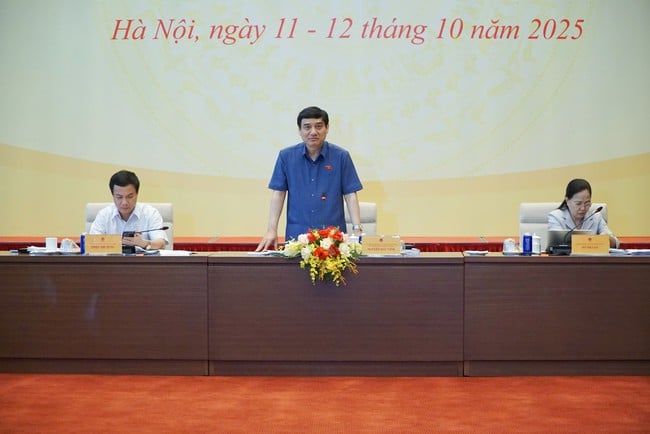
The 3rd plenary session of the National Assembly's Committee on Culture and Social Affairs
Speaking at the discussion session, Chairman of the Committee for Culture and Society Nguyen Dac Vinh emphasized that the inclusion of the content of establishing a key multimedia media agency in Clause 6, Article 16 of this draft law is a new point, demonstrating the state management mindset towards approaching the trend of press-media convergence and the strong development of technology.
However, the current draft law still lacks criteria to identify key multimedia media agencies; at the same time, it also lacks specific organizational mechanisms, management authority and financial mechanisms for this model, as well as the relationship between key multimedia media agencies and the planning for the development of the national press network after 2025.
Agreeing with the above opinion, Vice Chairman of the National Assembly's Committee on Culture and Society Ta Van Ha also raised the issue of the draft's openness: in addition to the six key agencies identified by the State, whether large press agencies with sufficient capacity and conditions can develop into multimedia agencies or not.
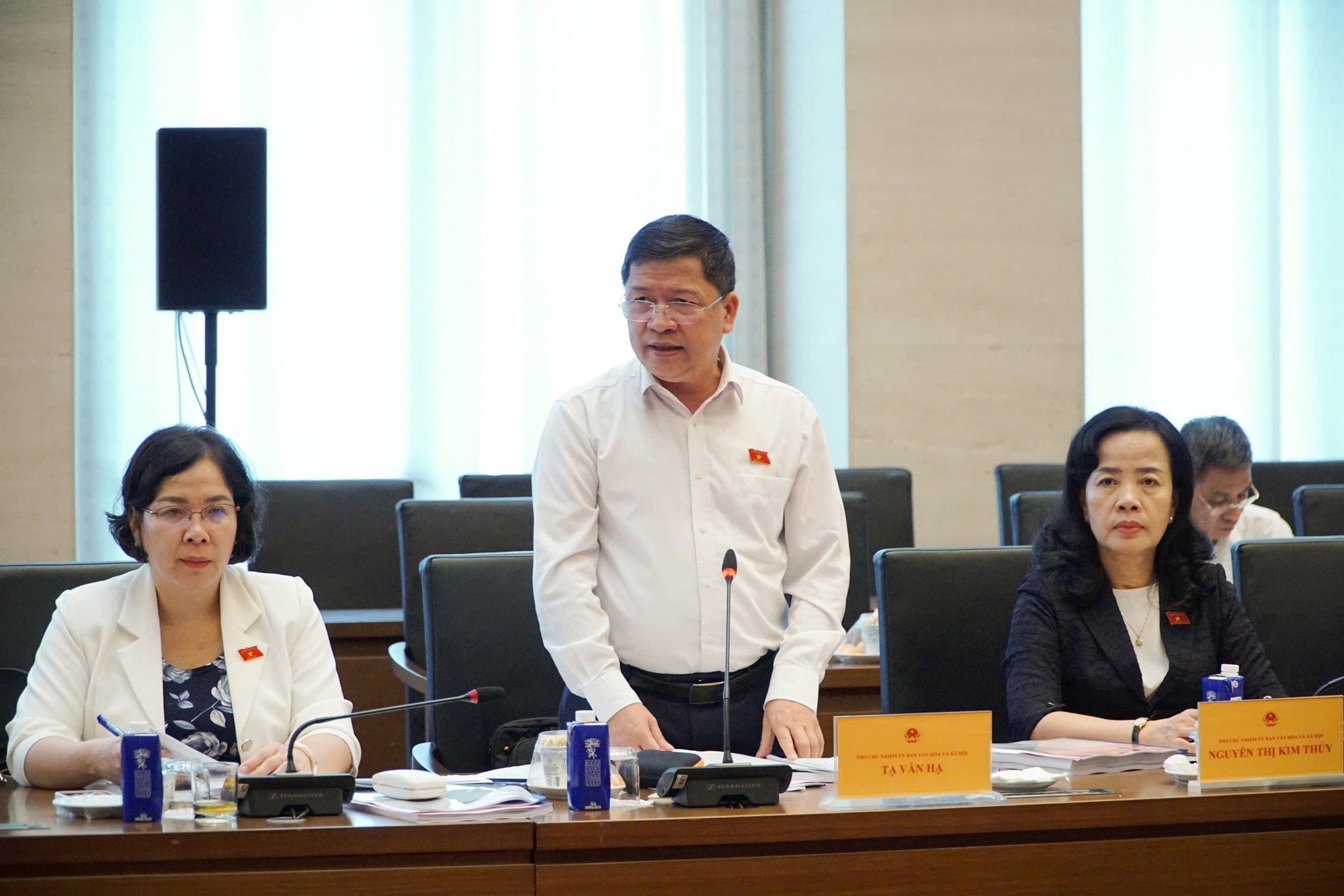
Vice Chairman of the National Assembly's Committee on Culture and Social Affairs Ta Van Ha speaks at the meeting
Sharing the same view, Delegate Do Chi Nghia, a full-time National Assembly member at the Culture and Social Affairs Committee, said that determining the model of the main media agency needs to ensure flexibility, both suitable to Vietnam's reality and compatible with international practices.
Delegate Do Chi Nghia emphasized: "We should not rigidly stipulate that the head of a key multimedia agency must be the General Director, but should expand depending on the type, it can be the Editor-in-Chief for print or electronic newspapers, Deputy Editor-in-Chief, Station Director for television. What is important is the scale and social role, not the title."
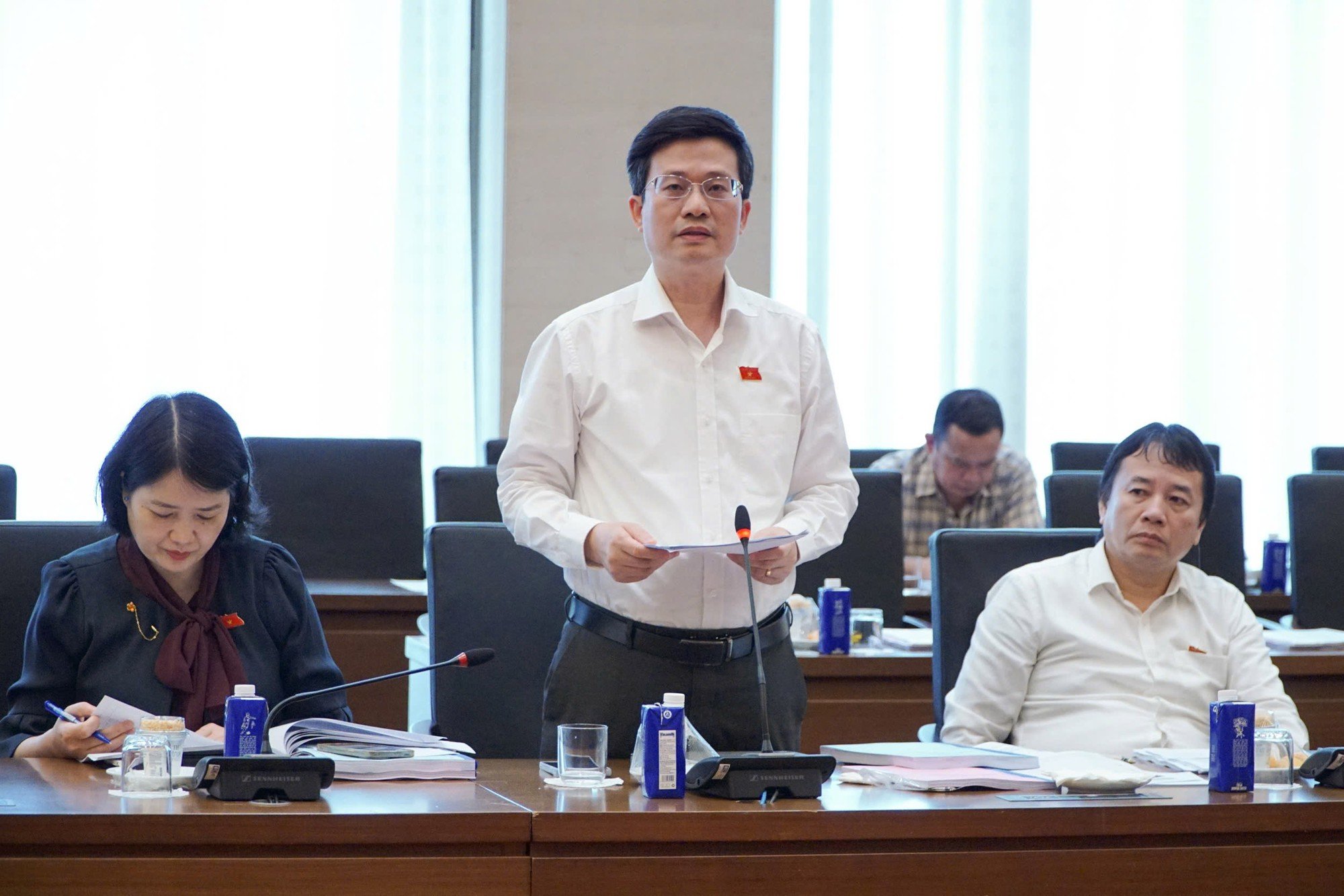
Delegate Do Chi Nghia, Member is a full-time National Assembly delegate working at the National Assembly's Committee on Culture and Society.
In addition to the discussion on the model of the main agency, the issue of press economics was also a topic that many delegates discussed enthusiastically. Most opinions agreed that, in the context of the press facing many challenges from changes in media models, technology and public behavior, determining a suitable financial mechanism is a prerequisite for the press to survive and develop healthily.
According to Chairman of the Committee for Culture and Society Nguyen Dac Vinh, the goal of these regulations is to "create a legal corridor to help the press both ensure the implementation of political tasks and have a sustainable financial mechanism, avoiding complete dependence on the budget or uncontrolled commercial revenue sources."
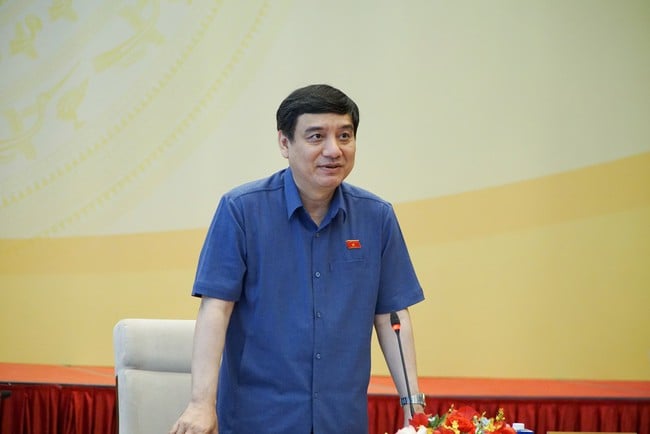
Chairman of the National Assembly's Committee on Culture and Social Affairs Nguyen Dac Vinh speaks at the meeting.
Agreeing with the above opinion, however, Vice Chairman of the Committee for Culture and Society Ta Van Ha noted that the development of the press economy must be carried out very carefully to avoid negative consequences.
"If the press continues to depend on advertising and business, it will be easily dominated. The State needs to have a specific ordering mechanism, assign tasks and ensure resources for the press to perform its function of orienting public opinion and propagating policies. Without this guarantee, it will be difficult for the press to properly perform its role," said Vice Chairman of the Committee for Culture and Society Ta Van Ha.
Responding to this opinion, Permanent Deputy Minister of Culture, Sports and Tourism Le Hai Binh said that putting journalism economics into law is to create a more open legal corridor for press agencies, helping them have space to maximize their internal strength and be able to "live well and live healthily" with their honest profession.
Permanent Deputy Minister Le Hai Binh emphasized: "If we want the press to maintain its purity and have enough strength to develop, we must give them a sustainable economic operating mechanism. Only when they can survive on their professional capacity can they do journalism independently and responsibly."
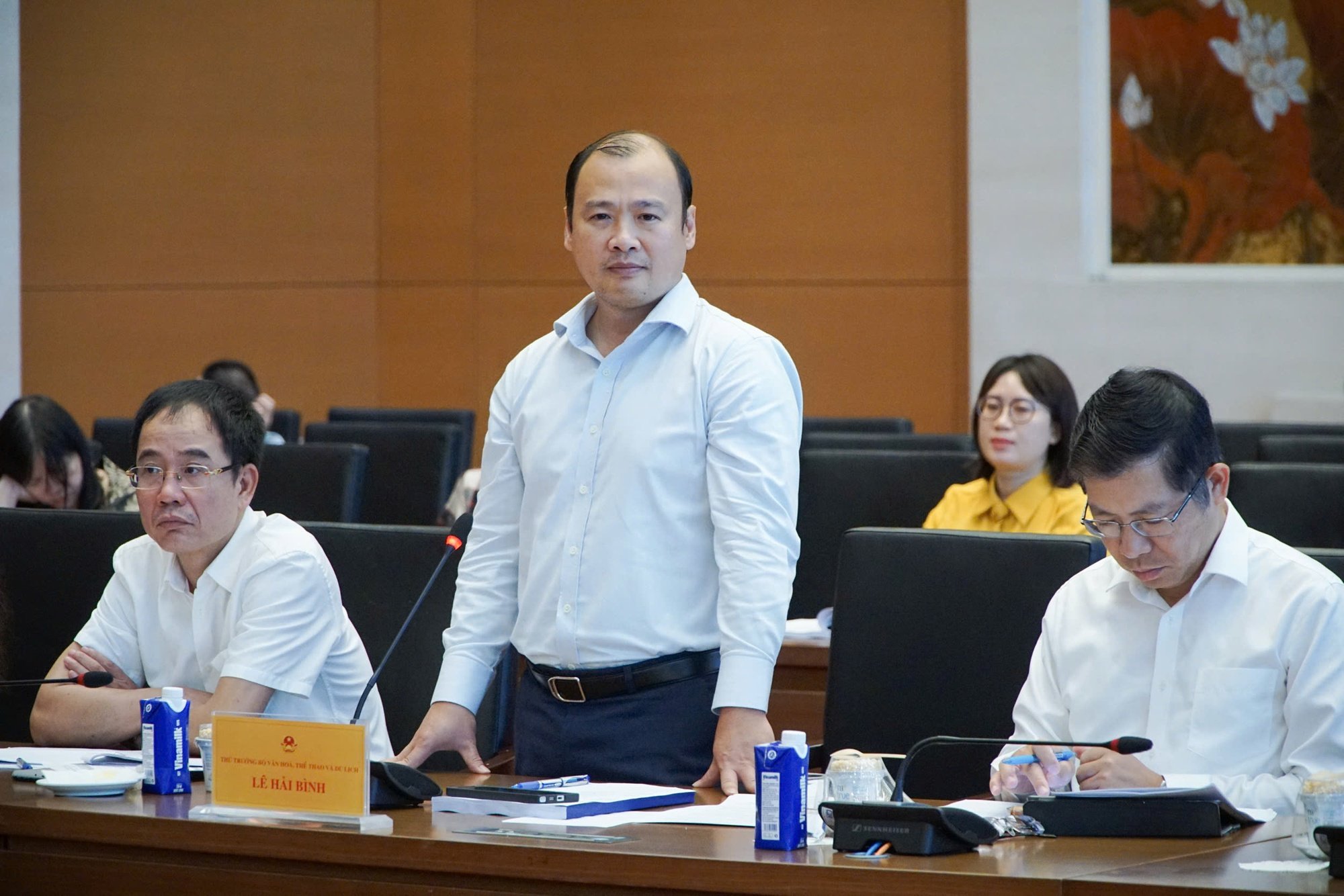
Permanent Deputy Minister of Culture, Sports and Tourism Le Hai Binh
Permanent Deputy Minister Le Hai Binh also shared that many press agencies are now proactively seeking new directions, such as organizing events, producing media products with humanistic values and spreading to society.
Typically, Nhan Dan Newspaper and Vietnam Television organize music events and performances that attract thousands of spectators. Although these events are not within the definition of press activities, they are activities with very high propaganda and humanistic value. Therefore, the law needs to create additional legal mechanisms so that such activities are recognized as legitimate press products and continue to be promoted.
Although there are still some different opinions, in general, the majority of delegates in the discussion session emphasized that in order for the press to effectively perform its role in guiding public opinion, social criticism and policy communication, the draft law needs to be completed with more specific policy mechanisms, especially provisions related to the organizational model of operations, as well as the policy mechanism for the operation of press agencies in the new period.
The Press Law (amended) is not only a legal document, but also the first step to building a more modern, humane and autonomous press in the digital transformation period.
Source: https://bvhttdl.gov.vn/hoan-thien-du-thao-luat-bao-chi-sua-doi-xay-dung-nen-bao-chi-hien-dai-nhan-van-va-tu-chu-hon-trong-thoi-ky-chuyen-doi-so-20251011220438442.htm








![[Photo] Discover unique experiences at the first World Cultural Festival](https://vphoto.vietnam.vn/thumb/1200x675/vietnam/resource/IMAGE/2025/10/11/1760198064937_le-hoi-van-hoa-4199-3623-jpg.webp)
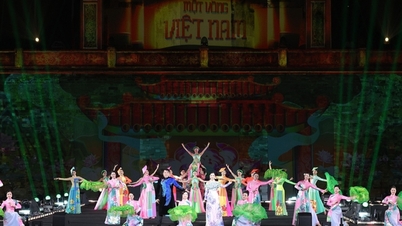
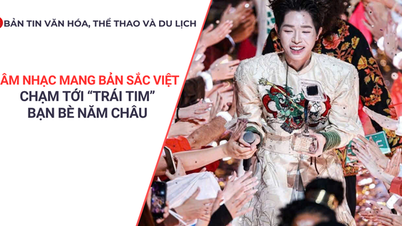
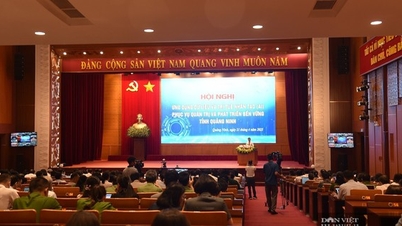

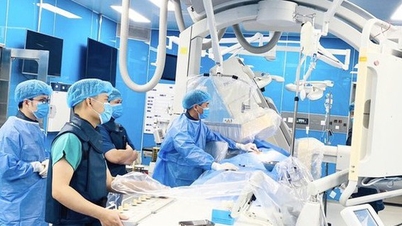
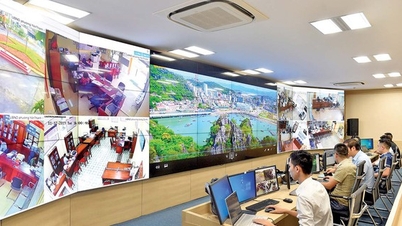





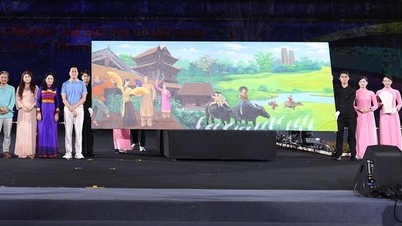

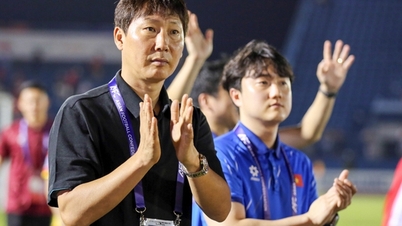
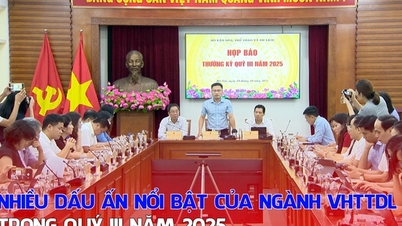

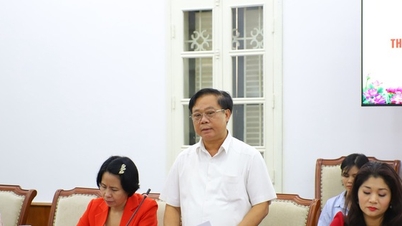
![[Photo] General Secretary attends the parade to celebrate the 80th anniversary of the founding of the Korean Workers' Party](https://vphoto.vietnam.vn/thumb/1200x675/vietnam/resource/IMAGE/2025/10/11/1760150039564_vna-potal-tong-bi-thu-du-le-duyet-binh-ky-niem-80-nam-thanh-lap-dang-lao-dong-trieu-tien-8331994-jpg.webp)
![[Photo] Opening of the World Cultural Festival in Hanoi](https://vphoto.vietnam.vn/thumb/1200x675/vietnam/resource/IMAGE/2025/10/10/1760113426728_ndo_br_lehoi-khaimac-jpg.webp)
























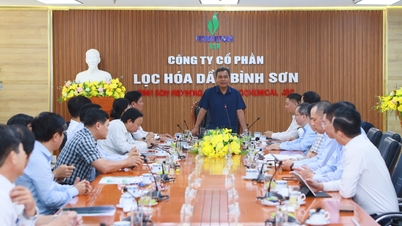








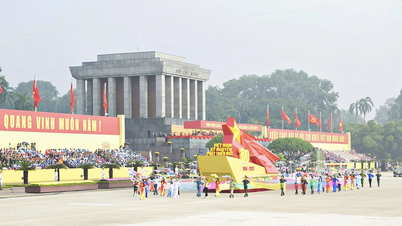

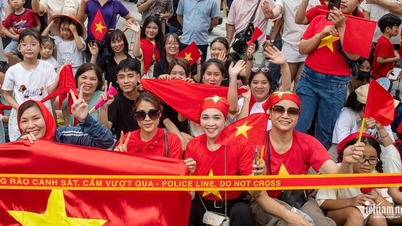

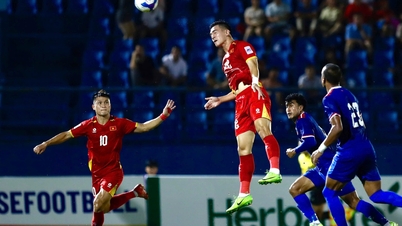
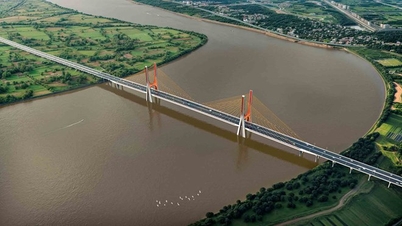

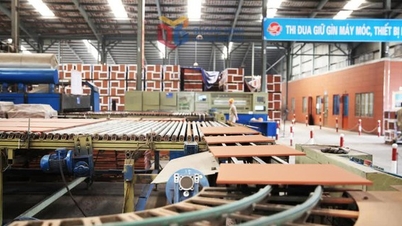
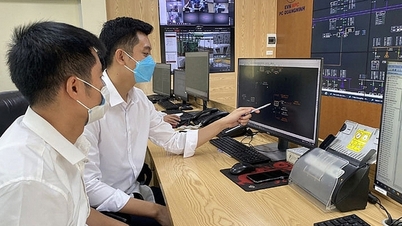
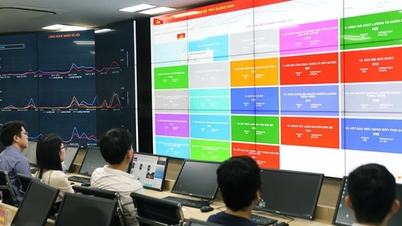
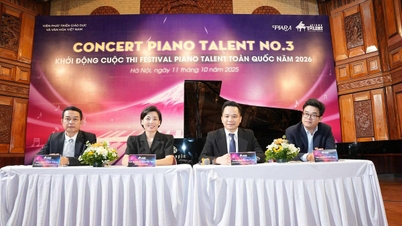
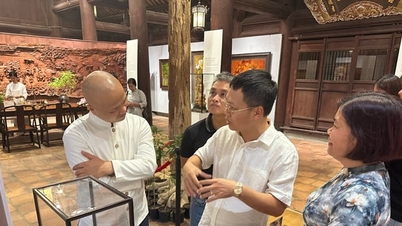

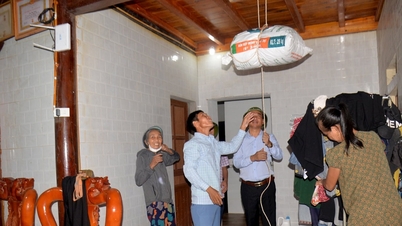

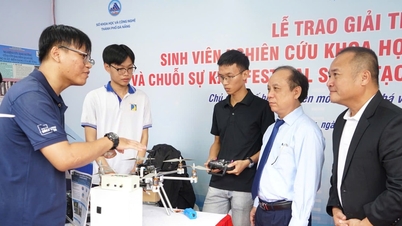



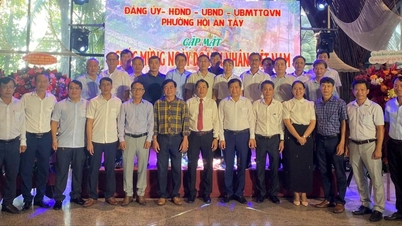














Comment (0)